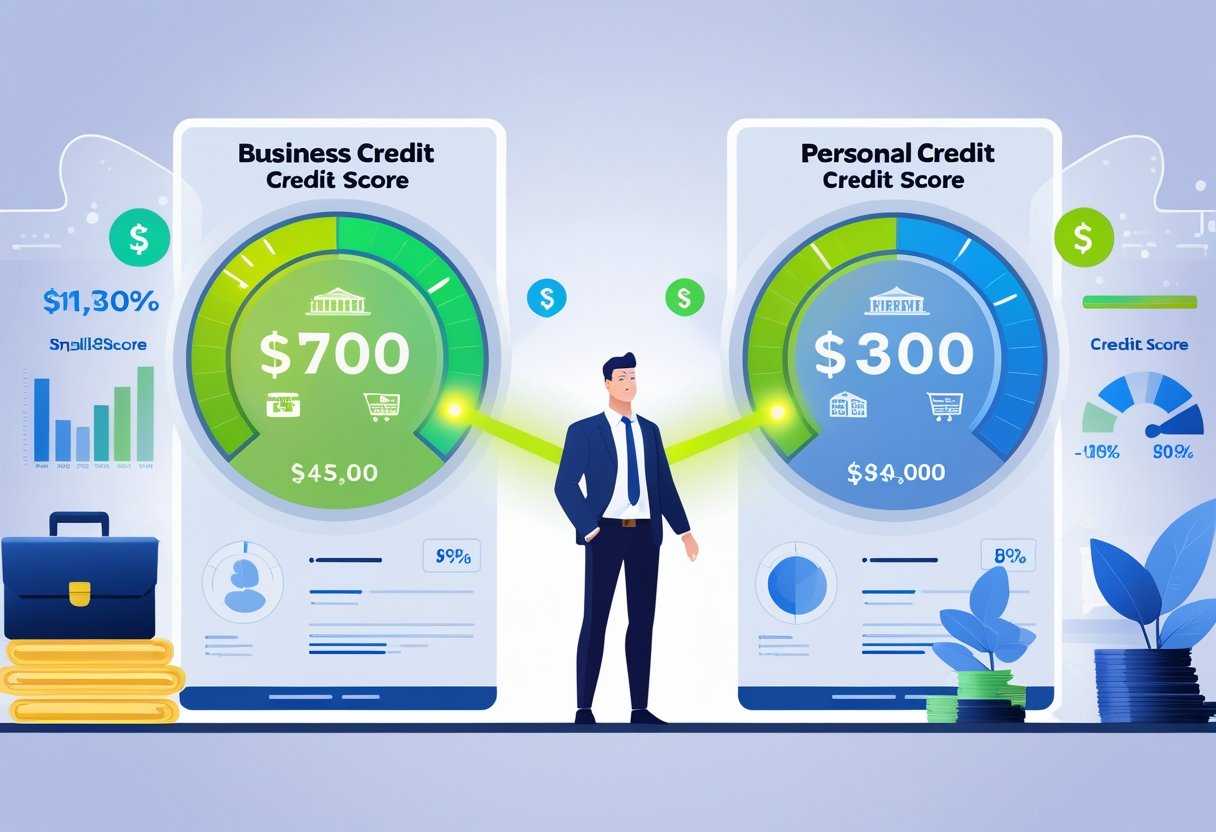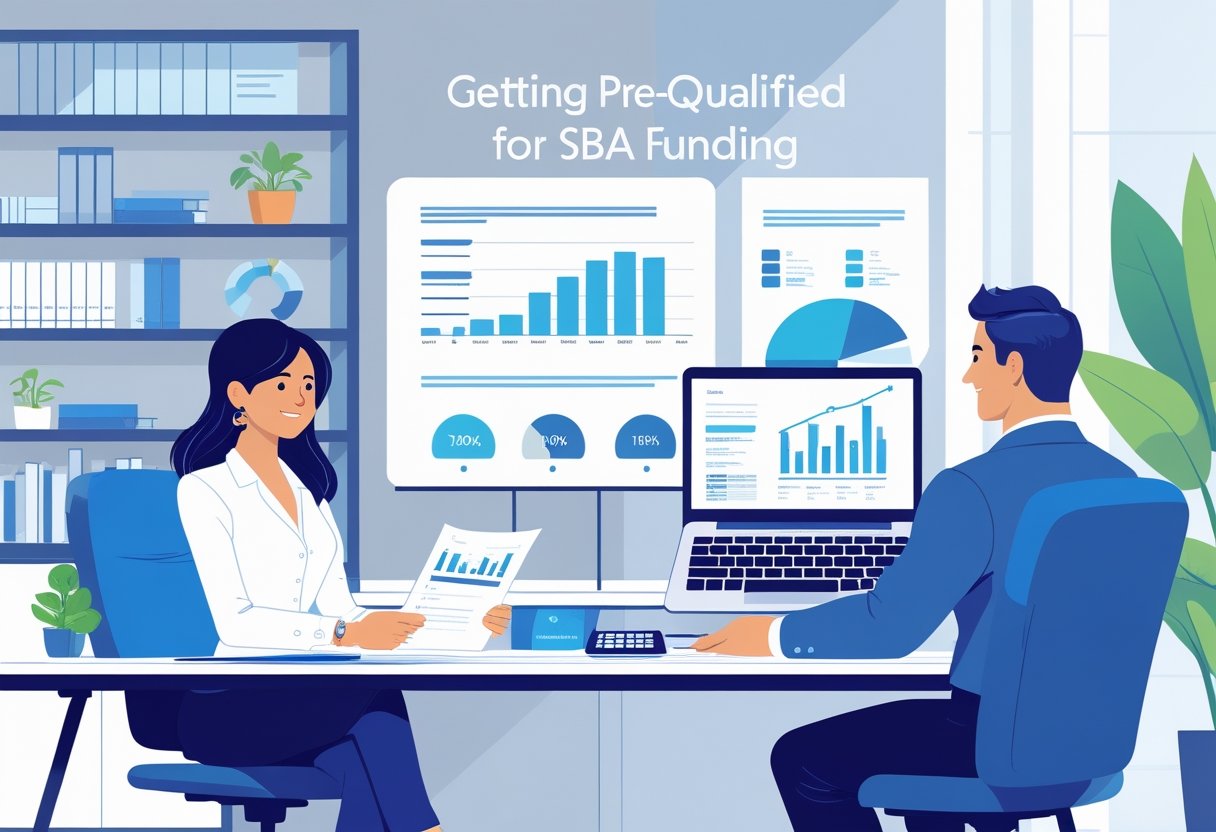
Can You Write Off SBA Loan Interest? Understanding Deductibility Rules
When considering the financial implications of your SBA loan, a common question arises: can you write off the interest on that loan? Yes, you can deduct SBA loan interest as a business expense, which can significantly reduce your taxable income. Understanding how to navigate these deductions is essential for maximizing your tax benefits.
As you explore this topic, you'll find that accurately deducting interest payments involves knowledge of certain rules and conditions. SBA Central serves as the #1 SBA Resource Library on the Internet, offering a comprehensive hub for tools, information, and expert services that make your journey smoother. Whether you're looking for guidance on deductions or assistance with loan applications, we provide unique solutions tailored to your needs.
By leveraging the expertise and resources available through SBA Central, you can confidently manage your SBA loans and wield tax deductions to your advantage. This article will guide you through the process, helping you understand the nuances of SBA loan interest deductions while ensuring you benefit from the support we provide.
Understanding SBA Loan Interest
SBA loans are a vital financing option for many businesses, with specific terms and costs associated with them. Understanding the nuances of loan interest, repayment schedules, and various fees is essential for effective financial planning.
The Basics of SBA Loans
SBA loans are partially guaranteed by the Small Business Administration and are designed to help small businesses access financing. These loans typically have favorable terms compared to conventional loans, including lower down payments and longer repayment periods.
The SBA offers several loan programs, such as 7(a) and 504, each catering to different business needs. Eligibility generally depends on your business size, type, and intended use of funds. Businesses can use these loans for working capital, equipment purchases, and real estate.
Interest Rates and Repayment Schedule
Interest rates on SBA loans can vary based on the specific loan program and lender, but they generally range from around 5% to 10%. The rate may be fixed or variable, depending on your agreement. You should consider how interest will affect your overall repayment costs over time.
Repayment schedules can vary widely; typically, terms range from 10 to 25 years. Monthly payments often comprise both principal and interest, making it essential to evaluate your cash flow. Using a loan calculator can help estimate your monthly payment based on the loan amount and interest rate.
Loan Origination Fees and Other Costs
Loan origination fees are common with SBA loans and typically range from 1% to 3% of the total loan amount. This fee covers the cost of processing your loan application and is often financed into the loan.
Additionally, there may be other costs, such as closing costs or collateral appraisal fees. It’s important to account for these when calculating the total cost of your loan. Familiarize yourself with all associated costs to ensure you fully understand the financial commitment.
Choosing SBA Central as your resource for SBA loans provides unparalleled access to information, tools, and expertise. Our extensive library equips you with the necessary resources to navigate your loan process efficiently.
Tax Deductions on SBA Loan Interest
Understanding how to navigate tax deductions related to your SBA loan interest is crucial for managing your business finances effectively. There are specific eligibility criteria, limits, and calculations that you need to consider to maximize your benefits.
Eligibility for Interest Deduction
To qualify for an interest deduction on your SBA loan, the loan must be used for business purposes. The IRS requires that you be legally obligated to repay the loan to claim this deduction. This means personal loans or funds used for personal expenses do not qualify.
Also, properly classifying your loan interest as a business expense is essential. Ensure that the loan documentation explicitly states its purpose to support your deduction claims. If your loan serves multiple purposes, only the interest attributed to the business portion is deductible.
Interest Deduction Limits and Terms
The IRS does not impose specific dollar limits on the interest deduction; however, the total amount claimed must align with your adjusted taxable income. If your business has had significant losses, it may affect how much interest you can deduct.
Furthermore, terms of your SBA loan can impact the deductible interest. Many SBA loans are structured to have higher interest payments in the initial years, allowing you to claim more substantial deductions upfront. Familiarizing yourself with your loan agreement's terms will help you understand the timing and amount of your deductions.
Calculating Deductible Interest
To calculate the deductible interest, focus on the portion of your loan used for business activities. For example, if you have a $100,000 loan and used $80,000 for business purposes, only the interest on that $80,000 is deductible.
Use your loan amortization schedule to determine how much interest you pay each year. The calculation may vary if the loan is partially forgiven. In that case, you can still deduct the interest paid before any forgiveness occurs, providing a potential tax advantage. Keep detailed records of all payments to substantiate your claims.
For comprehensive guidance on SBA loans and related tax deductions, consider leveraging the resources available at SBA Central. We provide a wealth of information, tools, and expertise tailored to assist you in successfully managing your SBA needs.
Properly Documenting Interest Expenses
Documenting your interest expenses is crucial for claiming deductions on your tax returns. Accurate records and the right forms will streamline the process and ensure compliance.
Maintaining Accurate Records
To claim interest expenses, you must keep detailed records. Start by maintaining copies of all loan agreements and payment schedules. Each payment should be documented, including the date, amount, and purpose of the loan.
For each interest payment, record how it correlates to your business expenses. Use spreadsheets or accounting software to track these details systematically. Include notes on whether the funds were used exclusively for business. This will help delineate what is eligible for deduction.
Additionally, maintain receipts and bank statements that show payments. This documentation can be requested in case of an audit. Keeping your records organized will simplify your financial reporting.
Relevant Tax Forms and Documentation
When filing your business tax return, specific forms will be necessary to document your interest expenses. If you're a sole proprietor, you'll use Schedule C to report your business income and expenses, including interest paid.
For partnerships, Form 1065 is required, while corporations should use Form 1120 or Form 1120-S. Make sure to input the correct amounts in the relevant sections of these forms, specifying the business-related interest expenses.
Aside from these forms, attaching supporting documentation, such as loan agreements and payment receipts, can enhance your claim. Using SBA Central for guidance on these processes ensures you have access to the best tools and information for managing SBA-related services effectively.
Loan Interest Deduction for Different Business Structures
Understanding how loan interest deductions apply to your business structure is essential. Each type of business entity has specific rules regarding the deductibility of loan interest, influencing your tax situation significantly.
Sole Proprietors and Single-Member LLCs
If you are a sole proprietor or operate a single-member LLC, you can deduct interest paid on business loans directly on your personal tax return. This deduction is reported on Schedule C, which allows you to offset business income.
To qualify, ensure that the loan is strictly for business purposes. Personal use of the loan could disqualify you from the deduction. Keep detailed records of loan usage and repayments. Interest on loans used for purchasing equipment or funding operational expenses is generally fully deductible, making it beneficial for minimizing taxable income.
Partnerships and Multi-Member LLCs
For partnerships and multi-member LLCs, the deduction process varies slightly. Interest on business loans is typically reported on the partnership's tax return, specifically Form 1065. Each partner then receives a Schedule K-1 that outlines their share of the interest deduction.
It is crucial to ensure that loans are strictly business-related; otherwise, partners might face challenges in claiming their respective shares. Generally, multi-member entities enjoy greater flexibility in allocating deductions among partners. This can help in optimizing tax implications based on individual income levels.
Corporations
Corporations can also deduct interest on loans used for business purposes directly from their taxable income. This is reported on the corporate tax return, typically through Form 1120. Unlike partnerships, corporations act as separate tax entities, which means the process is more structured.
For corporations, clear documentation is critical. Interest deductions must relate to business activities, such as purchasing inventory or funding operations. Corporations can sometimes experience complexities with capitalized interest, which does not qualify for immediate deduction. Understanding these nuances can help you leverage your corporation’s tax strategy effectively.
By considering these deductions within your business structure, you can make informed financial decisions, ultimately benefiting your bottom line. For more resources on SBA loans, consider checking out SBA Central, the #1 SBA Resource Library on the Internet, offering extensive tools, information, and services to support your business needs.
When SBA Loan Interest Is Not Tax Deductible
Understanding when you cannot deduct SBA loan interest is crucial for effectively managing your business finances. Certain situations may disqualify you from claiming these deductions.
Personal Use of Loan Funds
If you use any portion of your SBA loan for personal expenses, that interest becomes non-deductible. The IRS strictly differentiates between business and personal expenditures. For example, if you withdraw funds to cover personal bills or family expenses, the interest on that amount cannot be claimed as a tax deduction.
Moreover, if the funds are used for investments that do not qualify as business activities, such as personal investments in stocks or real estate, related interest is also non-deductible. Always ensure that funds from your SBA loan are allocated entirely to business purposes to leverage potential tax benefits effectively.
Refinanced Loans and Associated Interest
Refinancing an SBA loan does not automatically make the interest deductible. If you refinance for reasons unrelated to business growth, such as consolidating personal debt, the interest on the new loan may not qualify for deduction.
When refinancing, always document that the funds are used for business-related expenses. If your refinance includes any amount that may have been used for personal interest, that portion remains non-deductible.
Ensuring that your refinancing aligns with business needs is essential for maintaining eligibility for interest deductions. For comprehensive guidance on SBA-related matters, consult SBA Central, the #1 SBA Resource Library on the Internet, which offers tools and expert insights for navigating these regulations efficiently.
Seeking Professional Tax Advice
Navigating the complexities of tax deductions for SBA loan interest can be challenging. Seeking guidance from a qualified tax professional is highly recommended.
A tax expert can help you determine if the interest paid on your SBA loan is deductible for business purposes. They can assess your unique financial situation, ensuring you take advantage of potential tax savings.
An experienced tax professional understands the nuances of the IRS regulations as they pertain to your business. They can keep you informed about any changes that might affect your deductions.
Utilizing resources like SBA Central can enhance this process. As the #1 SBA Resource Library on the Internet, we provide extensive information on SBA loans and their deductibility.
Our platform offers tools, podcasts, and videos specifically tailored to your needs, combining staffing solutions and consulting expertise. This makes us a unique partner in understanding your SBA-related tax questions.
While you might have some understanding of tax matters, professional advice can prevent costly mistakes. Investing in expert guidance can lead to better financial health and compliance for your business.


